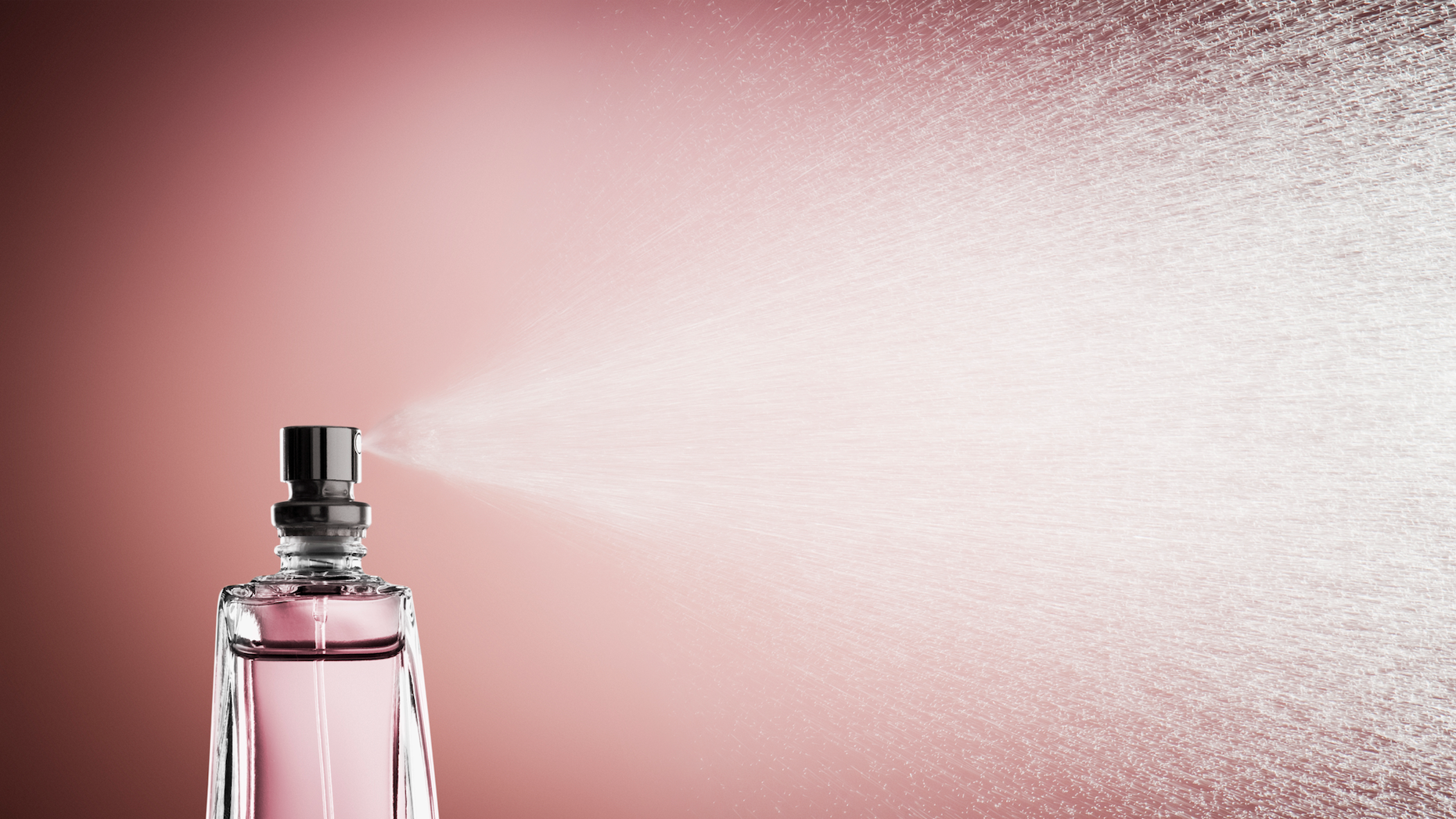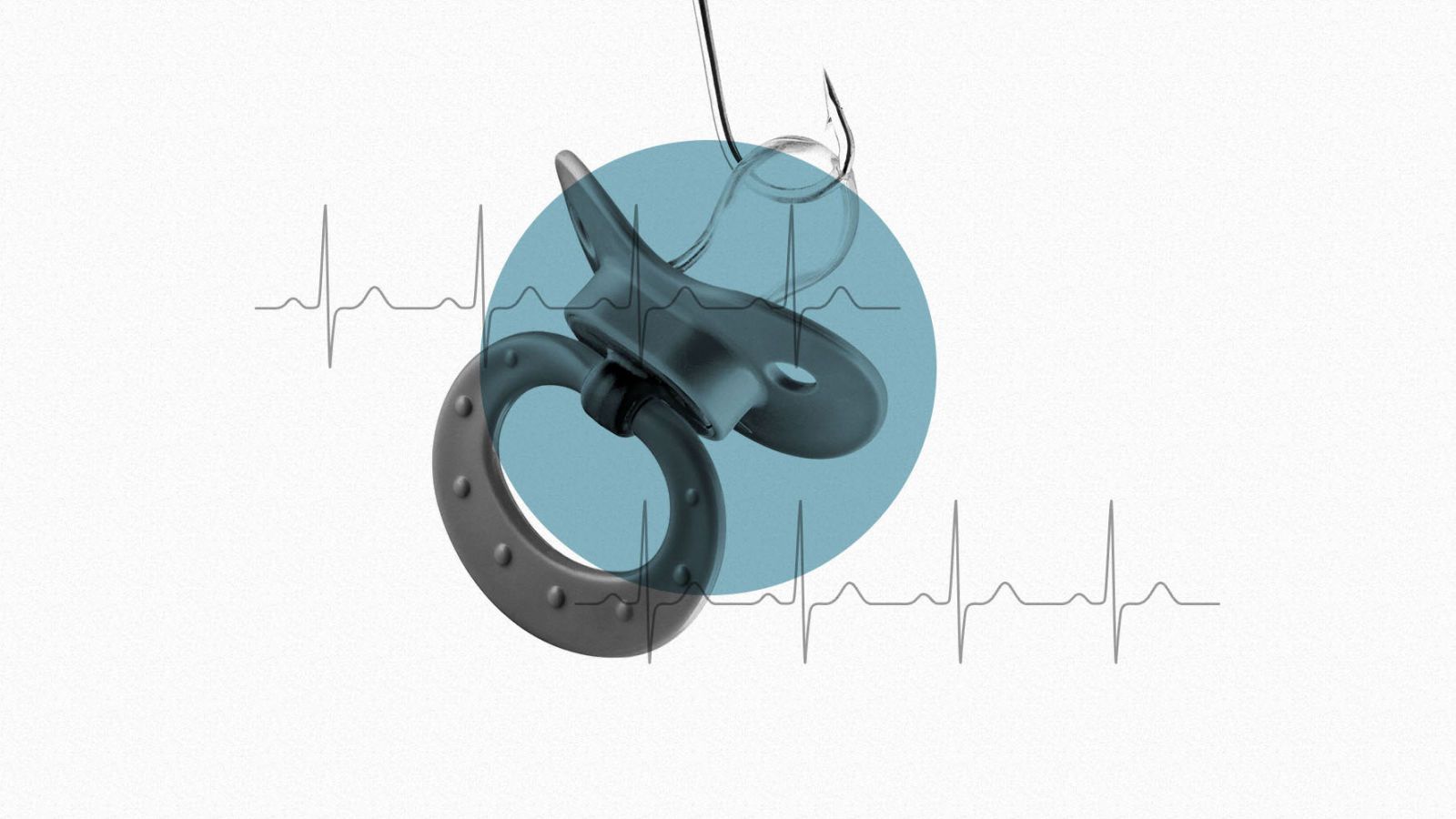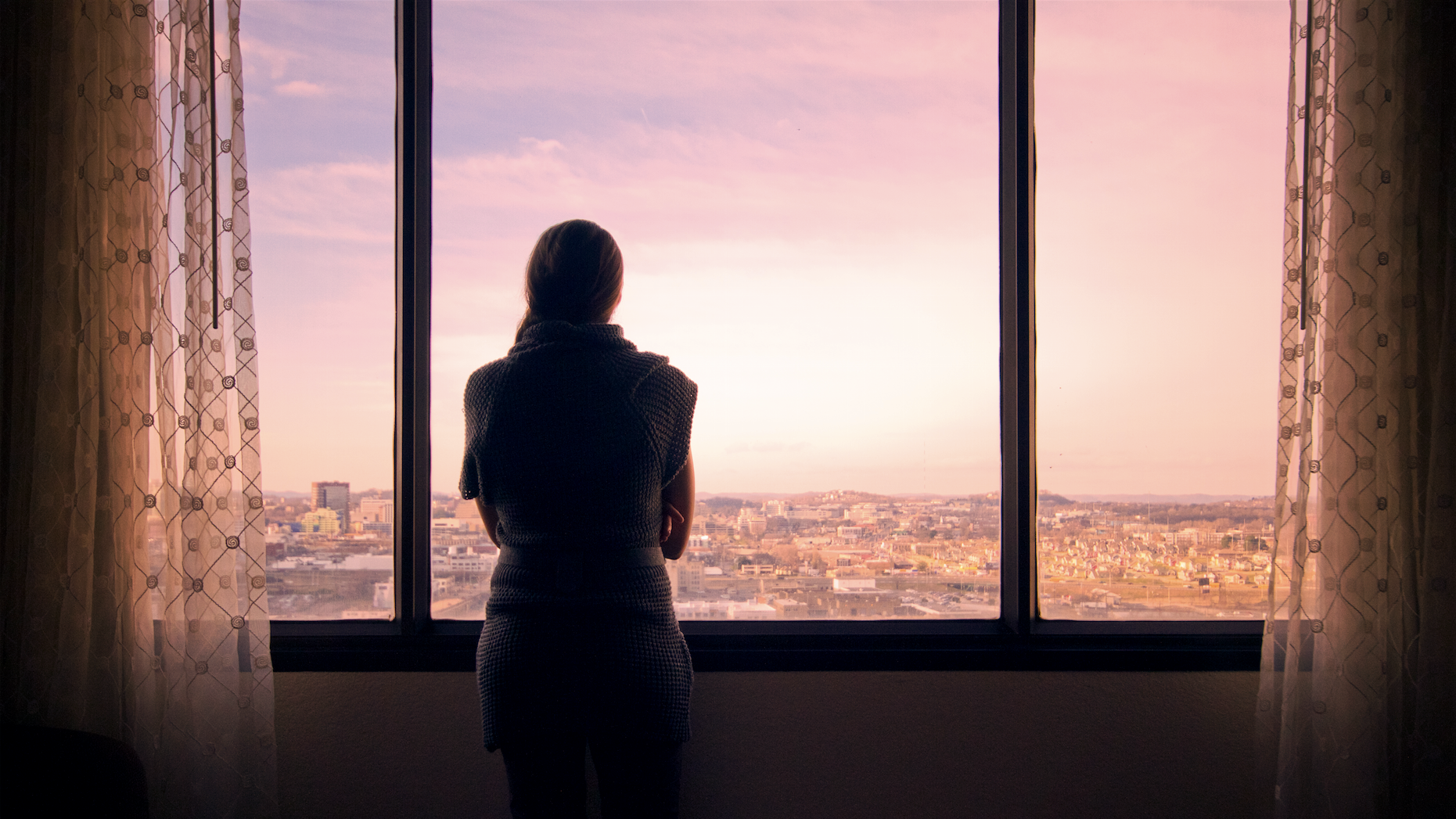I Have MCS—A Disease Where Smells Make Me Sick
My multiple chemical sensitivities got so bad, I had to search for a new home.

When I pulled into the driveway of the beachfront property, I was hopeful. After all, it was a long-term rental at a reasonable price. And did I mention the beachfront part? The apartment was actually a dune away from the water, but, still, an ocean breeze—just what the doctor ordered. Plus, during our call the landlord seemed relaxed, and a chill landlord is as rare as a reasonable seaside rental. I had hurriedly hung up the phone, jumped in my car, and headed east towards the Massachusetts coast.
Ninety minutes later, I walked up the stairs and into my dream apartment. The landlord waved me in without looking up. His attention was focused on the aerosol can in his hand and the open window in front of him. He sprayed liberally. "Darn wooden sashes," he complained. "The morning fog makes them swell and get stuck."
My eyes widened. I wasn't sure what he was applying to the sashes, but my nose told me it was petroleum-based. You'll be fine, I reassured myself, as I accepted his offer of a tour. I mean, the ocean breeze and all that. The air would clear quickly, right?
He sat with me as I coughed up thick wads of mucus. I could only guess that my lungs were trying to protect themselves.
As we made our way through the rooms, I began to feel confused. I had a list of tenant-y questions, but now I couldn't remember them. When the landlord's voice started to sound like it was traveling down a tunnel, I knew I was in trouble. Hiding my urgency, I asked how many windows he had sprayed. All of them, he declared proudly. My lungs started to burn. It was hopeless; I had to vacate. I thanked him and fled.
Ten minutes later, I pulled my car into my boyfriend's workplace parking lot. With a look of surprise and concern, he sat with me on the curb as I coughed up thick wads of mucus. I had experienced a spectrum of strange bodily reactions after a chemical exposure, but this phlegmy one was new. I could only guess that my lungs were trying to protect themselves from the irritants in the wood spray.
There wasn't much I could do; I kept coughing and hoping it would pass so my bewildered boyfriend could return to his job—and not bolt our fledgling relationship. I was both shocked and not shocked that even an airy, ocean-side apartment couldn't save me from the scourge of every day toxins.
I live with a condition called multiple chemical sensitivities, or MCS. It’s also referred to as environmental illness, chemical injury, or TILT, toxic induced loss of tolerance. In short, I'm hyper-reactive to small amounts of chemicals and perfumes.
Get exclusive access to fashion and beauty trends, hot-off-the-press celebrity news, and more.
Different people experience MCS differently, so symptoms vary, but they often manifest as headache and visual disturbances, mental confusion and neurological dysfunction, weakness and nausea, rapid heart rate and dizziness, difficulty breathing, or even blacking out. The disease isn’t fully understood. An estimated 12 to 16 percent of Americans have some degree of chemical sensitivities—researchers don't yet know why some people are more inclined to develop it than others, but suspect genetics plays a role—even if that means simply not being able to tolerate certain cleaning products.
Severe MCS can start after an ongoing toxic exposure, like working in a moldy or so-called "sick building," or a single, greater toxic exposure, like walking through a field just after an aerial spraying. But MCS can also start more insidiously, as a co-morbid condition to a separate health problem. That’s what happened to me.
I simply thought people were wearing too much perfume and that was why my nostrils burned and my brain felt foggy.
My MCS began decades ago as a mild symptom of my neuroimmune disease, myalgic encephalomyelitis (ME), sometimes called by the disparaging name chronic fatigue syndrome. ME disables 1 to 2.5 million Americans and can leave a person without strength and stamina for decades on end.
Chemical sensitivities came on in stages, tracking the progression of my ME. At first, I didn't even know I had MCS. I simply thought people were wearing too much perfume and that was why my nostrils burned and my brain felt foggy when I stood next to them. When I started to feel nauseous every time I put on my own favorite perfume, I began to wonder.
I turned to my friends in the chronic illness community. That's when I learned that MCS could be a by-product of other on-going health conditions. Still, I dismissed these mild chemical sensitivities for years. Eventually my ME worsened and I wound up bedridden much of the time. That actually made the MCS easier to manage. After all, homebound and living alone, I could control which chemicals I came in contact with.

When I did manage to make it out into the world, my reactions were sudden and varied—a pounding headache, a racing heart, shortness of breath. Then there was that time I spent hours throwing up on the side of the highway after being stuck in traffic, surrounded by diesel exhaust. I reluctantly came to accept MCS as a real problem; I had no choice but to yield to its demands.
To some, my new need to rush away when confronted with a chemical or man-made fragrance must have seemed loony. I’ll bet the protective mask I occasionally wore did, too. But the dual strategy of fleeing as soon as I sensed toxins, and the donning of a mask when I couldn't, helped a great deal.
I avoided certain smelly places, like the mall. But it was harder to avoid friends. I mastered the faux hug: I'd quickly declare my chemical sensitivities, then mime embracing the air in front of me. Confused, the person usually responded by hugging the air, too, leaving both of us looking rather silly—but at least I didn’t have a headache.
A friend’s spouse left her because it was too much of a chore to live scent-free.
It was a regimented way to live, but do-able. That is, until my home was found to have a mold problem and I was forced to search for a new apartment.
For a full year, I visited rental after rental that I couldn't tolerate. Maybe the landlord had just painted or the last renters sprayed for ants in the kitchen, or used dryer sheets in their laundry, or incense in their bedroom. The molecules permeated their surroundings and embedded in the drywall and wood floors, stubbornly refusing to dissipate. Every place I looked at left me sicker and my lungs sorer.
RELATED STORIES



Trying to find a new home when you have MCS is like trying to find the proverbial needle in a haystack. I have friends who have been looking for eight years. Unable to find a safe living space, some turn to trailers—a tiny house, of sorts. Who knew a tragic health condition could force you to become hip?
Safe housing isn’t the only hardship of severe chemical sensitivities. A friend’s spouse left her because it was too much of a chore to live scent-free. Another friend's family rejected her, insisting she was making it up (after all, if they didn't react badly to their laundry products, why should she?). And one couple I know can't stay in their once-safe home because a neighbor recently started using pesticides in his adjacent yard. Beyond these specific insults and injuries, MCS sufferers lose their sense of safety in the world—anywhere, at any time, your surroundings can turn into a pit of poison.
As the number of people living with some degree of chemical sensitivities grows, MCS is becoming accepted as a real condition. Plus, many people—adverse reactions or not—are rejecting the overabundance of chemicals in their lives. Companies are responding and making “fragrance-free” products for everything from soap to sun screen.
And if I don't want to spend money on these often-pricey products, I’ve found that baking soda and vinegar clean just about anything, naturally, for pennies. I’ve abandoned the toxic chemicals I formerly used to clean my toilet, shower, and rugs and went back to the same things my grandmother kept under her kitchen sink.
Employers are also increasingly aware. More workplaces, doctors’ offices, and even houses of worship are posting notices requesting people refrain from wearing fragrances. A few local governments, including ever-progressive Portland, Oregon, and federal agencies, like the Centers for Disease Control, now ban employees from wearing perfume in the office.

A few months after my disappointing visit to the beachfront apartment, a friend forwarded me a notice she found on a green living listserv.
Environmentally clean "green" house available on wooded lot. Built with nontoxic construction materials for person with chemical/mold sensitivities, now moving. No fragrances, chemical cleaning products, or pesticides ever used on property.
I couldn't believe my eyes. With my boyfriend accompanying me (no longer my new and bewildered beau, but rather my "I know the drill," perma-beau), I headed in the opposite direction of the ocean. We made a beeline for the back hills of Western Massachusetts, in search of my new dream home.
A full year after my housing search had begun, we moved into our new home in the woods. It is isolated, the driveway long. No neighbor's vents spewing dryer sheet fragrances will ever reach our open windows. For me "home sweet home" will always mean "home scent-free home."
Rivka Solomon is a Massachusetts writer focusing on disability and women’s issues. She works as an ME advocate with Mass ME Association. You can find her on Twitter, @RivkaTweets.